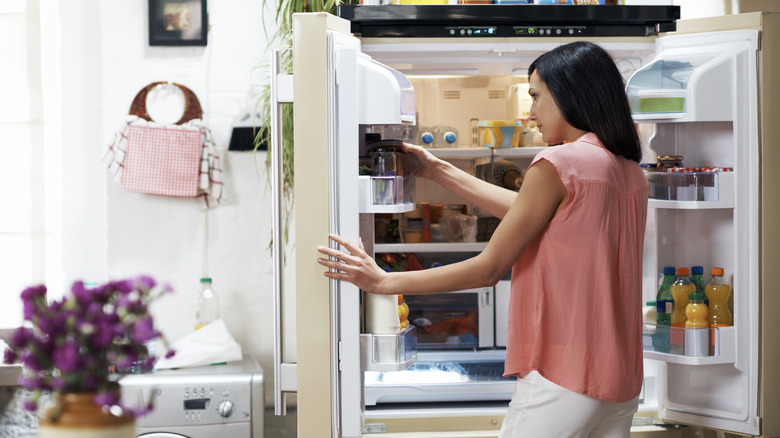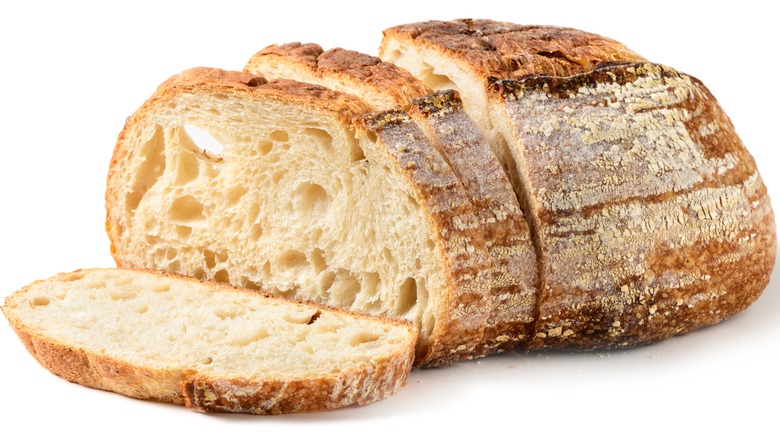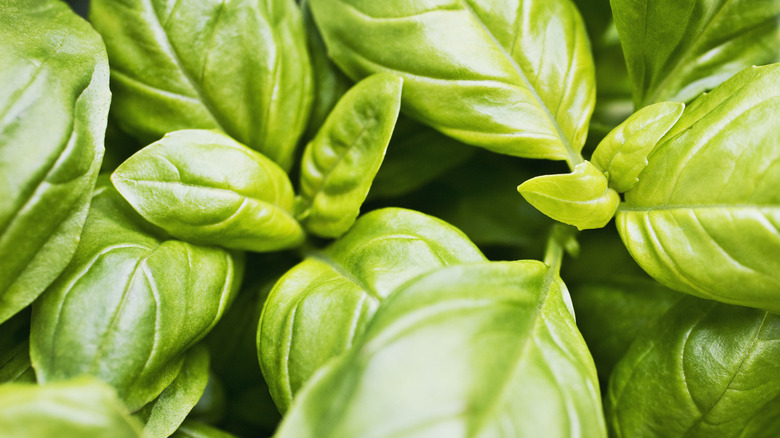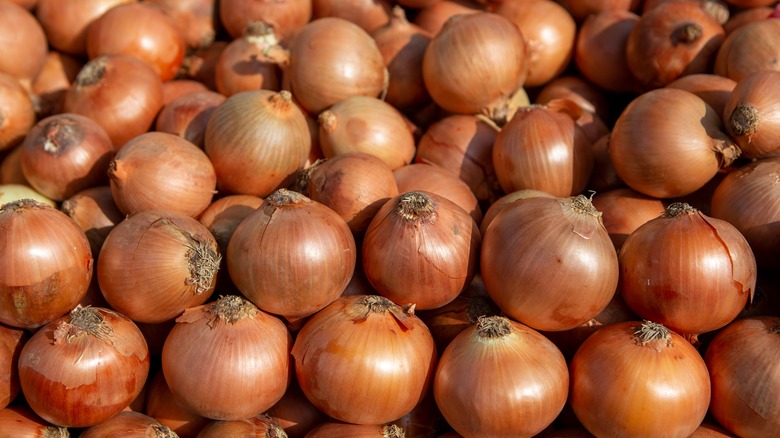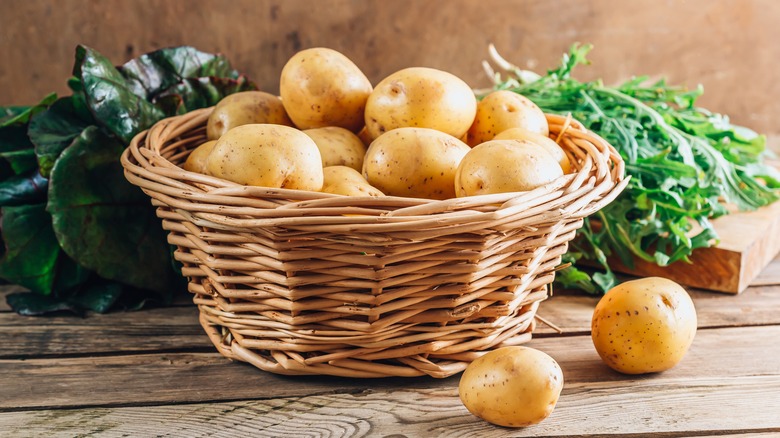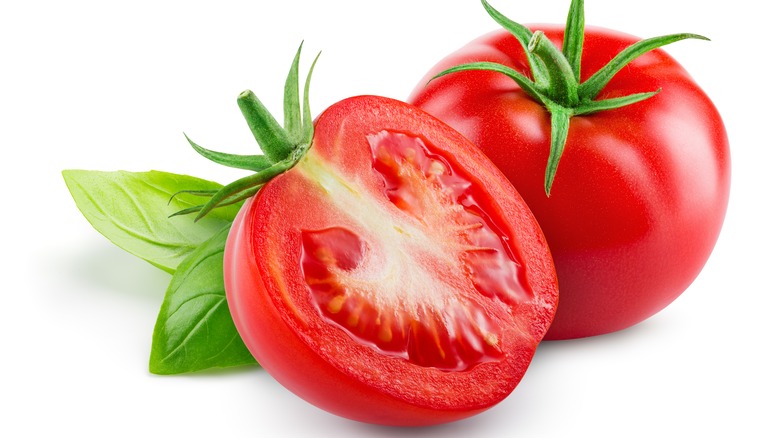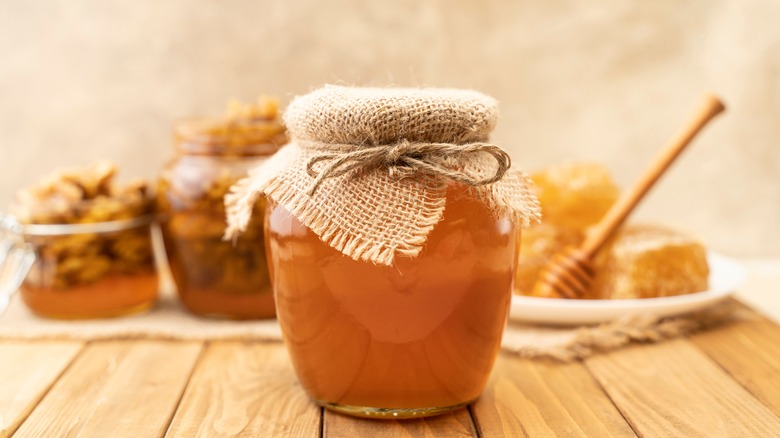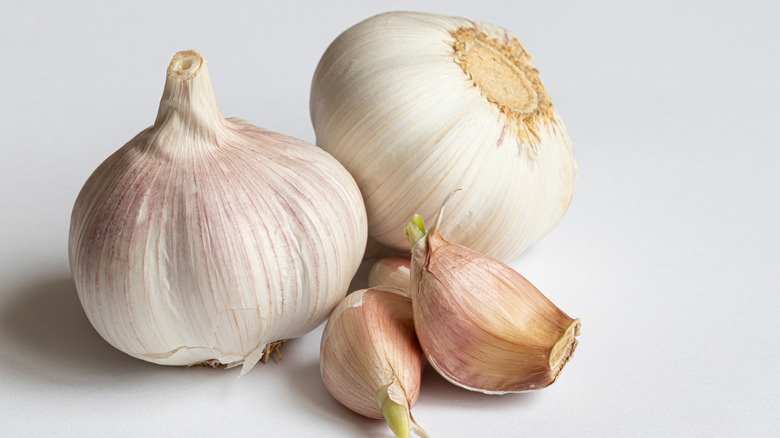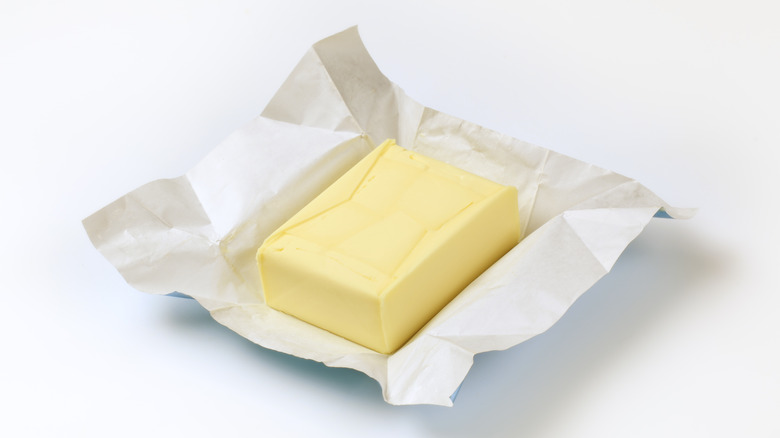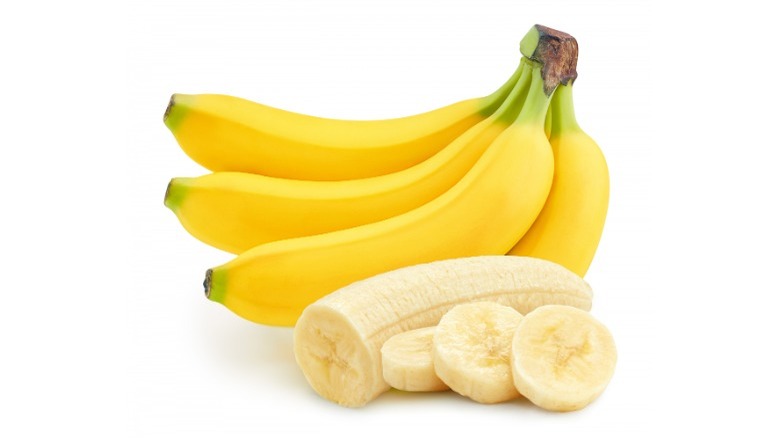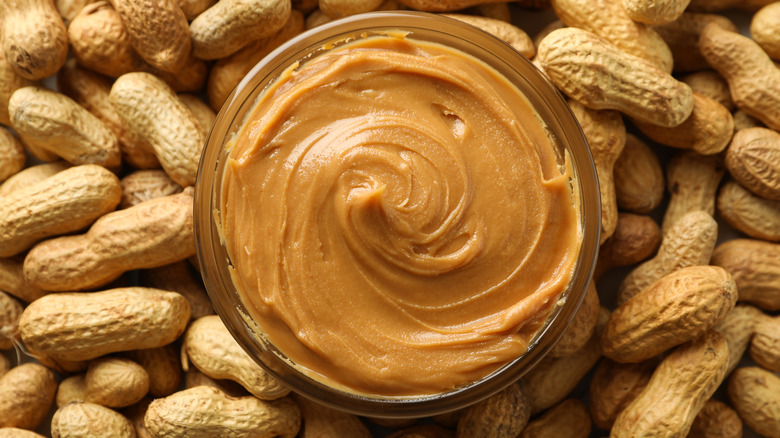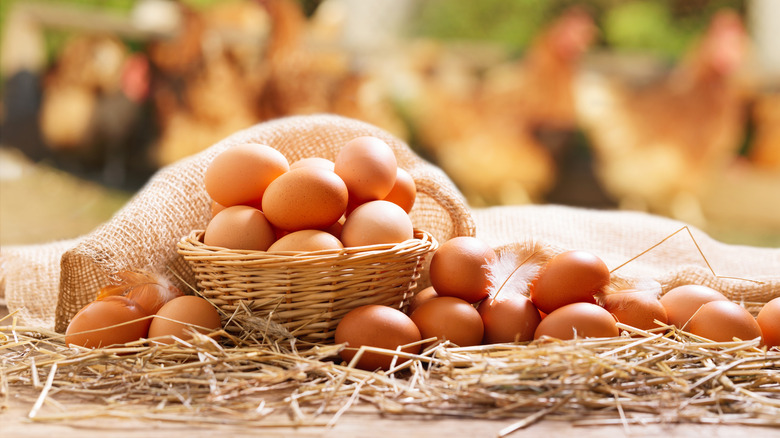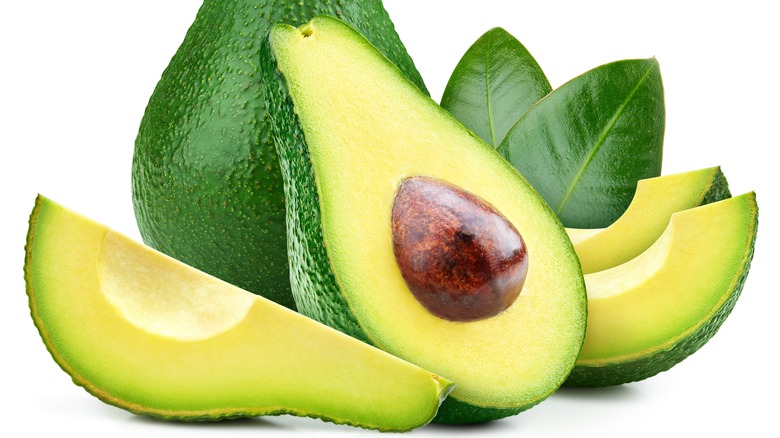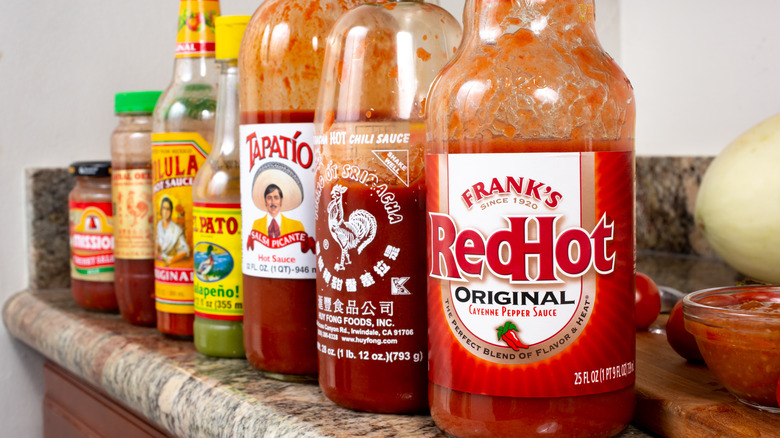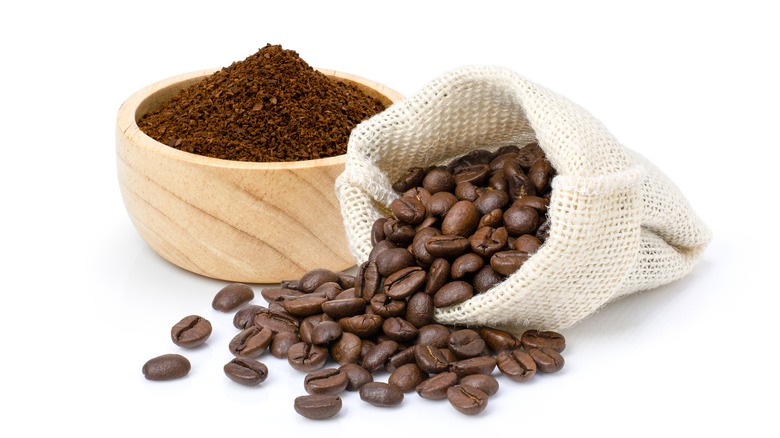Foods You Don't Actually Need To Refrigerate
We all want to make groceries last as long as possible, and a common method for food preservation is to stick it all in the fridge. The cool temperatures and dark insides make refrigerators ideal for prolonging the life of food. However, this compulsion for refrigerating everything that comes into the home has inspired increasingly large refrigerators, which have become ubiquitous. Americans have some of the largest refrigerators in the world, and yet we always seem to be running out of space in them.
However, this is a problem that has a simple remedy. Stop putting everything straight into the refrigerator. There are plenty of foods that can survive on the counter and still more that will actually do better when left out of the refrigerator altogether. We have compiled a list of common foods that do not need to be refrigerated so that you can start making room for the ones that actually do. Some of your food may even taste better after reading this article and rethinking the use of the refrigerator.
Bread
Everyone tries to make bread last longer. Fresh bread from a bakery will go stale remarkably quickly. How often have you gotten a loaf only to find it solid as a rock a day later? Sliced bread from a grocery tends to last longer owing to the amount of preservatives included. This helps keep the bread soft and supple longer, but still, bread can grow mold or go stale shockingly fast. It is tempting to stick bread in the fridge to help it last longer. However, storing bread in the refrigerator is not the answer you are looking for.
While, yes, the refrigerator will help prevent the bread from getting moldy, it comes at a price. Bread placed in the refrigerator will get stale much faster than bread stored in other ways. The cold temperatures found in the refrigerator cause the starches in the bread to lose moisture and dry out. This happens to bread stored in the cold unless the bread is entirely frozen in the freezer. This will preserve the moisture of the bread and prevent it from molding.
Grocery store bread left on the counter without other intervention will typically last about a week. Another option is to invest in a breadbox, which can extend the life and quality of fresh bread for several days.
Basil
Fresh basil is a wonderfully aromatic herb. It is so pleasant to look at and smell. Why would you want to store it in the fridge where you can't enjoy it until you're cooking with it? Especially when the refrigerator is likely to do more damage than good when it comes to preserving basil.
Everyone has their opinions on how to preserve basil. One of the most common methods is to clean and dry basil and store it in a plastic bag with a paper towel in the refrigerator crisper. However, this method causes damage to the basil almost immediately. Food52 conducted a study testing different storage methods, including several in the refrigerator. All the refrigerator methods were inedible within days.
The best way to store basil is one of the simplest and allows you to enjoy it. When you bring in fresh basil, trim the stocks, and place them in a jar of water as you would with fresh-cut flowers. With this method, fresh basil will last on the counter for up to two weeks.
Whole onions
Onions love to chill out in places that are cool and dark. You would think this makes them perfect for the refrigerator; there can be too much of a good thing. The best temperatures for whole onion storage are between 45 degrees and 55 degrees Fahrenheit. The average refrigerator maxes out at 40 degrees. This creates a problem for onions and can cause them to get prematurely soft.
A better option for storing onions would be in a cool dark cabinet, away from any appliances that may cause excess heat. If you have an old house with a dry cellar, you can keep onions there. They should be stored outside of a bag so that they have plenty of exposure to air. Stored this way, whole onions can last for several months, and while they can be stored in the refrigerator, it will significantly cut down on the life span of the onions.
It should be noted this applies specifically to whole onions, whose dry skin helps protect them. Cut or peeled onions must be stored in the refrigerator, where they will last for seven to 10 days. Freezing them will preserve them for three to six months.
Potatoes
Much like onions, potatoes prefer the world on the cooler side, between 43 degrees and 50 degrees Fahrenheit. This is, once again, though, still warmer than a refrigerator, so why use the valuable space? Potatoes are best stored in a cool, dry place such as a basement, cellar, or just a dark cabinet away from any heat sources. Not only will keeping the potatoes cool help extend shelf life, but it can even preserve the natural nutrients found in the potatoes.
Once again, storing potatoes in the refrigerator can become too much for them. The temperatures found in a refrigerator can cause the starches in potatoes to turn to sugars.
Based on the similarities in storage, it seems like it would make sense to store potatoes and onions together, but you are better off not doing so. While each will last months if stored correctly on their own, both will suffer if placed together. Onions produce ethylene gas, which will cause the potatoes to spoil quickly, and potatoes bring a lot of moisture with them, which can cause onions to get soft. It is best to store them separately and not in the fridge.
Tomatoes
Fresh tomato season is a glorious time of year, especially for those who live in cooler climates. It is common knowledge that tomato plants do not like the cold. In fact, tomatoes would rather never get colder than 65 degrees Fahrenheit. So it stands to reason that its fruit would also not like refrigeration. While it is tempting to toss all fruits and veggies in the fridge to keep them for as long as possible, this really takes tomatoes out of their element.
One study showed that there is a scientifically defined loss of flavor from tomatoes that are stored in cold environments, such as in a refrigerator. That being said, tomatoes stored in a refrigerator will likely last longer than those stored outside. Tomatoes will typically last up to a week on the counter, depending on the ripeness of the fruit. If you want the best-tasting tomatoes, storing them on the counter is your best bet, and if space in the refrigerator is tight, do not hesitate to let them sit out.
Honey
One of the cool things about honey is that if it is properly cared for, it never goes bad. Honey has even been found in ancient Egyptian tombs that was still safe to eat. As long as honey is in a sealed container, it will continue to be safe for consumption. Once it is opened, through, the clock starts ticking. However, it is a very slow clock. Honey is typically thought to last about two years when sitting on the counter.
Since honey lasts so well at room temperature, there really is no reason to store it in a refrigerator. Storing it there will actually cause problems. Anyone who has come across an older bottle of honey knows that the golden liquid can crystalize over time. It is still safe to eat, but it is much more challenging to work with. Storing honey in a refrigerator speeds up this process, and you will end up with a semi-solid block of honey instead of the easy-to-spread syrup consistency we have come to know and love. For this same reason, freezing honey is also not recommended.
Honey can be kept on a shelf or in a cabinet. Just ensure it is out of direct sunlight. Stored this way, honey will be safe to eat for quite some time.
Head of garlic
Garlic and onions are part of the same plant family called alliums. It is no surprise, then, that we once again have a food that likes to be stored in a cool, dry, and dark place. This time, though, the temperature can be a little higher, like 60 degrees to 65 degrees Fahrenheit. This is near the temperature of the average home, which makes storing garlic even easier.
A head of garlic can be stored in the refrigerator, but considering how cold it is, this is not ideal. The cold will cause the garlic to begin to sprout, which can alter the flavor, making it bitter. Garlic in the refrigerator can sprout in as little as a few days, whereas garlic stored on the counter can last up to six months. The clear option is to keep it out of the fridge. Even better, if you need to, unlike the potato, garlic can be stored with its cousin, the onion.
Once again, though, this applies specifically to the whole head of garlic. Once the head is broken and individual cloves are removed, garlic must be used sooner. Unpeeled cloves will last seven to 10 days at room temperature while peeled cloves need to go in the refrigerator, where they will stay fresh for a week.
Butter
It is the great debate: where to store the butter? Some are team refrigerator, and some are team counter. There are advantages to both refrigerated butter and butter at room temperature. Butter on the counter is soft, easily spreadable on toast, and often perceived as tasting better. Butter in the refrigerator is hard, which can be good for certain recipes such as pie crusts. Plus, the refrigerator will undoubtedly preserve the butter well.
Those on team refrigerator argue that butter, as a dairy product, cannot be safely left on the counter, but the truth is that butter is perfectly fine left out of the refrigerator — for the most part, that is. For butter to be left out, it should be pasteurized. As a food scientist at StateFoodSafety told Insider, it is the pasteurization process that keeps butter safe at room temperature for longer than just a few hours. Luckily all butter commercially sold in the United States is required to be pasteurized.
Butter stored on the counter in a traditional container will last just a few days, according to the U.S. Department of Agriculture. There is also some thought that salted butter will actually last longer than unsalted. If you want the ease of countertop butter but don't think you can use it in a day, you may want to consider a French style butter container, which uses water to help keep butter fresh for up to a month on the counter— no need to refrigerate here.
Whole bananas
Bananas like it hot. Originating in Southeast Asia, banana cultivation has spread to South America, China, and Africa. While this is a wide area, the thing all these places have in common, though, is heat. Bananas simply do not do well with cold weather, so please, do not place them in the fridge.
Storing your bananas in the fridge can lead to a multitude of problems. First, if you put them in the refrigerator, the natural ripening process will be inhibited. This means if your bananas are not ripe already, they will not get ripe if stored in the refrigerator. Additionally, the cold conditions of the refrigerator basically just make bananas give up. If you have ever put a whole banana in the refrigerator, you may have noticed that the peel turns black. That is because the peel is literally breaking down. Storing your bananas in the fridge can lead to a banana that is simultaneously underripe while looking overripe. An original commercial for Chiquita Bananas from the 1940s even tells listeners not to put them in the refrigerator.
Instead, store bananas on the counter, preferably away from fruits and vegetables sensitive to ethylene, such as onions. If you eat bananas often enough, also consider a banana hanger to help them last even longer.
Peanut butter
Where to store peanut butter can be very confusing. You generally do not buy it in the refrigerator section, but some jar labels say, "Refrigerate after opening." Nuts, in general, do not need to be refrigerated if used within their typical lifespan, so what is the deal? Does peanut butter need to be refrigerated or not?
The answer is, for the most part, that peanut butter can be stored in a cabinet for a certain length of time. But that time varies depending on the type of peanut butter. Once opened, natural peanut butter, made from just peanuts and salt, will last about one month in a pantry. Peanut butter with stabilizers and preservatives such as sugar in it may be good stored out of the refrigerator for several months.
Ideally, peanut butter should be stored in a cool and dark spot to help extend its life. But if your package specifically states it should be kept in the refrigerator after opening, it is best to follow the manufacturer's instructions.
Fresh eggs
Many Americans will be surprised to find eggs on this list. We buy eggs in the refrigerated section of the grocery store and are told to keep them there for safety. However, in most of the rest of the world, eggs are a countertop item, not a refrigerated one. And that is because of how commercial eggs are processed in America. When we say fresh eggs, we mean super fresh. Not "I just picked these up from the store" fresh. More like "I just picked these out of my chicken coop" fresh.
Commercial eggs in America are required to go through a cleaning process that, while eliminating bacteria, also leaves the shells unable to preserve the egg without the help of refrigeration. Many other countries do not clean their eggs in the same fashion, so they are shelf stable for about three weeks. This makes sense, as the regular hatch cycle for a chicken is three weeks as well. If you get your hands on some fresh eggs that have not been through the cleaning process, they are able to sit out without going bad.
Whole avocados
Avocados are notoriously finicky produce. You wait and wait and wait for them to ripen, only to have that perfect ripeness last all of about eight minutes. Still, for your patience, you are rewarded with delicious, creamy fruit.
If you do find yourself with some unripe avocados, not only can you leave them on the counter, but they are better left on the counter than in the refrigerator. Refrigerating avocados will slow down the ripening and potentially lead to underripe avocados. Now, once they are ripe, you are more than welcome to put them in the refrigerator, but you do not need to. Until they are cut open, avocados are safe to store at room temperature on the counter.
If you are looking to speed up the ripening process, a common method is to use a paper bag. Place the avocado inside, and the natural ethylene gasses trapped in the bag will help the avocado ripen faster. You can even try sticking a high ethylene fruit, such as a banana, in the bag with the avocado to speed up the process.
Many hot sauces
The great thing about most hot sauce is it is often naturally designed to preserve itself. Vinegar, a common ingredient in hot sauce, is high in acid and naturally prevents bacteria from growing. Additionally, capsaicin, the ingredient that gives peppers their heat, works in a similar way. Frank's RedHot, for example, tells you right on the website that the original hot sauce does not need to be refrigerated. Of course, Frank's is a commercially produced hot sauce, many of which contain preservatives. Additionally, hot sauces such as sriracha do not require refrigeration. This is very good news for hot sauce lovers who may otherwise have a hard time fitting the whole collection in the fridge. Hot sauce bottles are usually shelf stable for about six months.
Now, not all hot sauces are simple vinegar and pepper-based sauces. While those are generally safe outside of the refrigerator, non-vinegar-based hot sauces, such as those made with oil or a fruity base, do need to be refrigerated. Additional ingredients, such as raw garlic, can also affect the ability of the sauce to sit on the counter. Check labels to be sure.
Coffee beans
Much like bread, people tend to think that keeping coffee beans in the refrigerator will help keep them fresh. However, the opposite is actually true. The refrigerator is not cold enough to add any preservation to the coffee beans, but it does give the beans the opportunity to absorb the smells and flavors all around it, which will not lead to a pleasant coffee experience.
Whole vacuum sealed coffee beans can last on the shelf for up to a year. Once the bag has been opened, you have about three weeks to use the whole beans. Ground coffee beans will last sealed for up to five months, but once open, they should be used in less than a week. If you have the capability, storing coffee beans whole and grinding what you need fresh with a coffee grinder will result in the longest shelf stability and the best tasting coffee.
Coffee should always be stored in a cool, dry place, out of direct sunlight and away from smelly foods or humidity. Additionally, the use of an airtight container will help preserve coffee beans and grounds.
